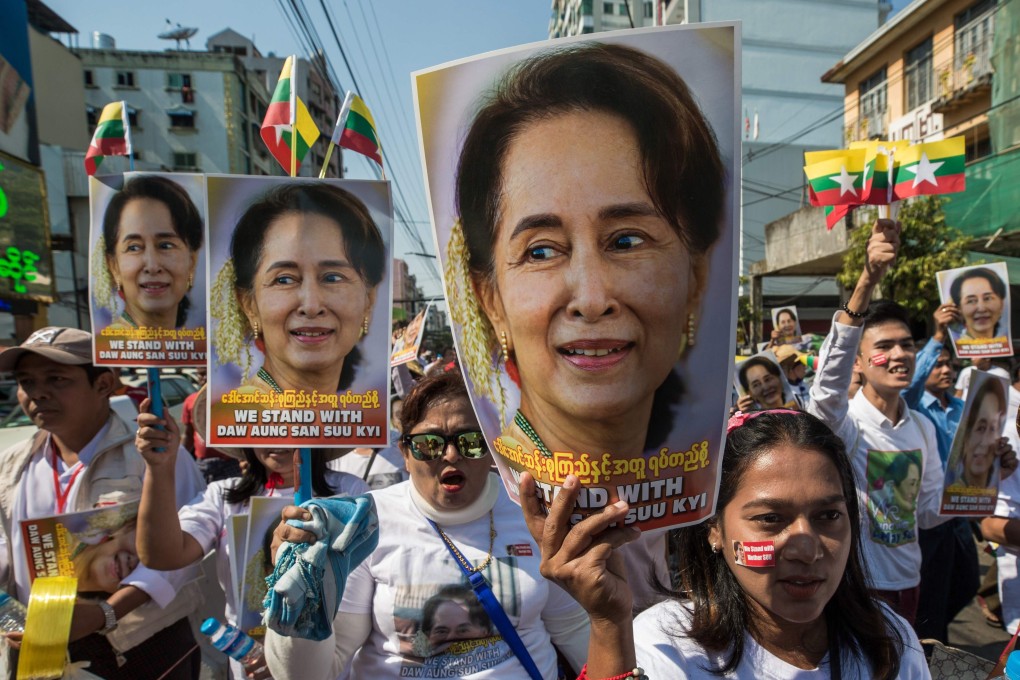Advertisement
Myanmar coup: China calls for calm ahead of emergency UN Security Council meeting
- Beijing says matter should be resolved by factions within the country
- Council expected to look at a range of action in response to military crackdown
Reading Time:2 minutes
Why you can trust SCMP
8

China has urged the international community to avoid escalating tensions in Myanmar as the UN Security Council prepares to discuss a response to the military coup in the Southeast Asian nation.
Myanmar’s military seized power on Monday in a flurry of early morning raids resulting in the detention of leading members of the civilian government, including Aung San Suu Kyi.
The military said it was imposing a one-year state of emergency, after which fresh elections would be held. Suu Kyi’s National League for Democracy was the overwhelming winner in legislative elections held in November.
Advertisement
Joining a chorus of leaders around the world, US President Joe Biden said the coup was a “direct assault on the country’s transition to democracy and rule of law” and threatened new sanctions against Myanmar.
British envoy to the United Nations Barbara Woodward said that during an emergency meeting on Tuesday the Security Council would “look at a range of measures, with the idea of respecting the people’s will expressed in the vote and releasing civil society leaders”.

04:08
'Worst nightmare': violence feared after Myanmar military coup
'Worst nightmare': violence feared after Myanmar military coup
China, a permanent council member with veto power over any proposals, said the international community should not take any action that would raise tensions in Myanmar.
Advertisement
Advertisement
Select Voice
Choose your listening speed
Get through articles 2x faster
1.25x
250 WPM
Slow
Average
Fast
1.25x